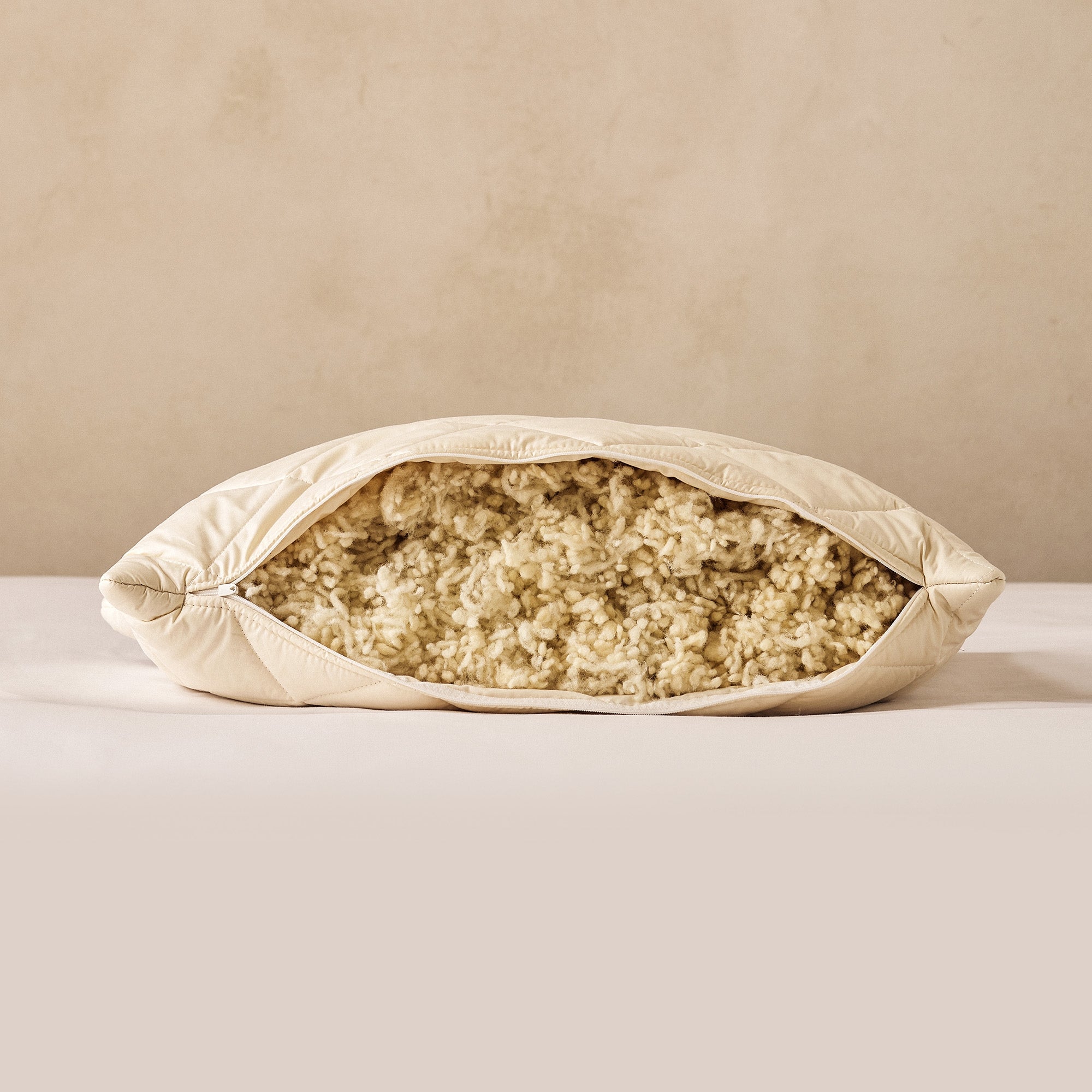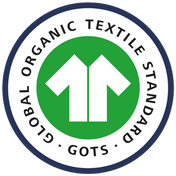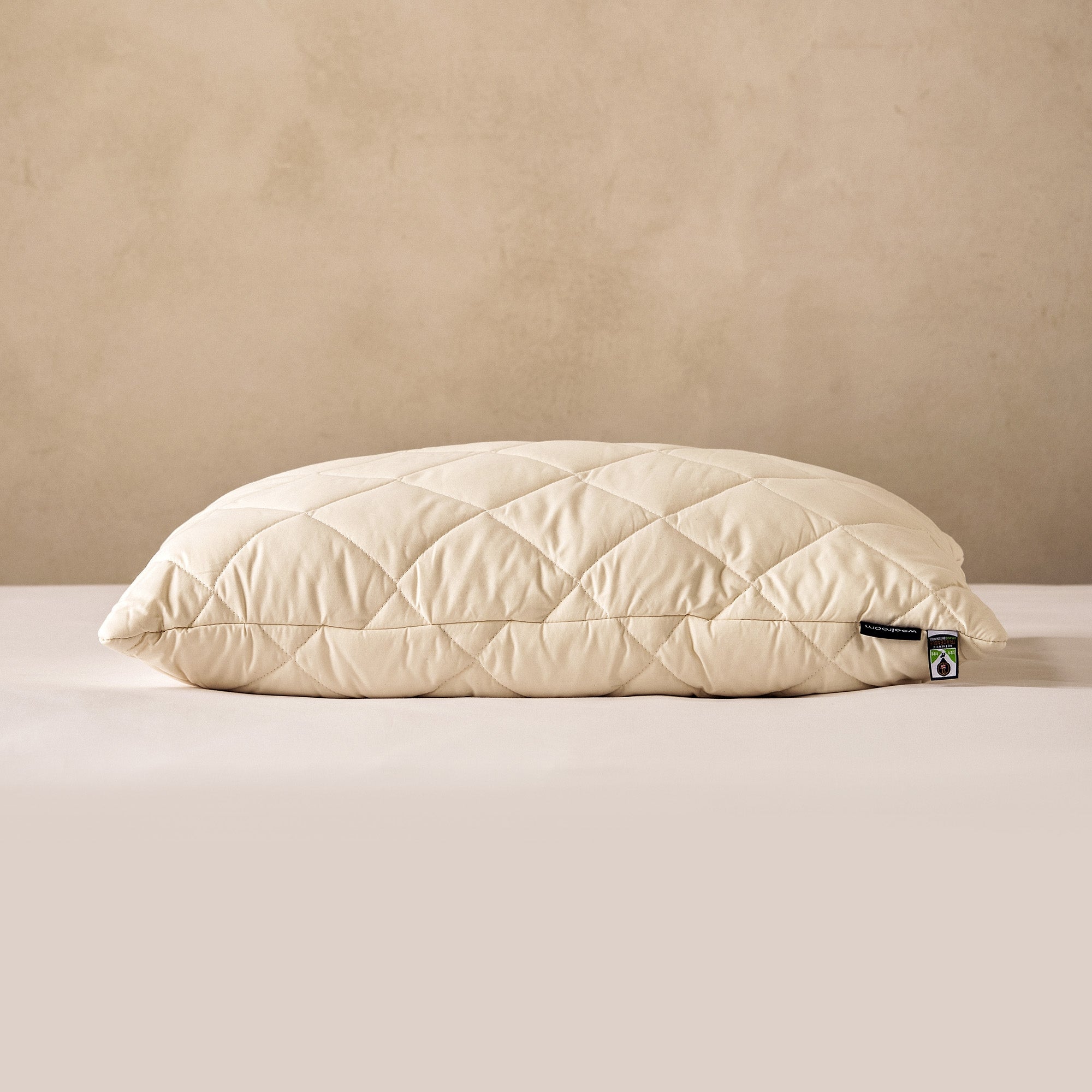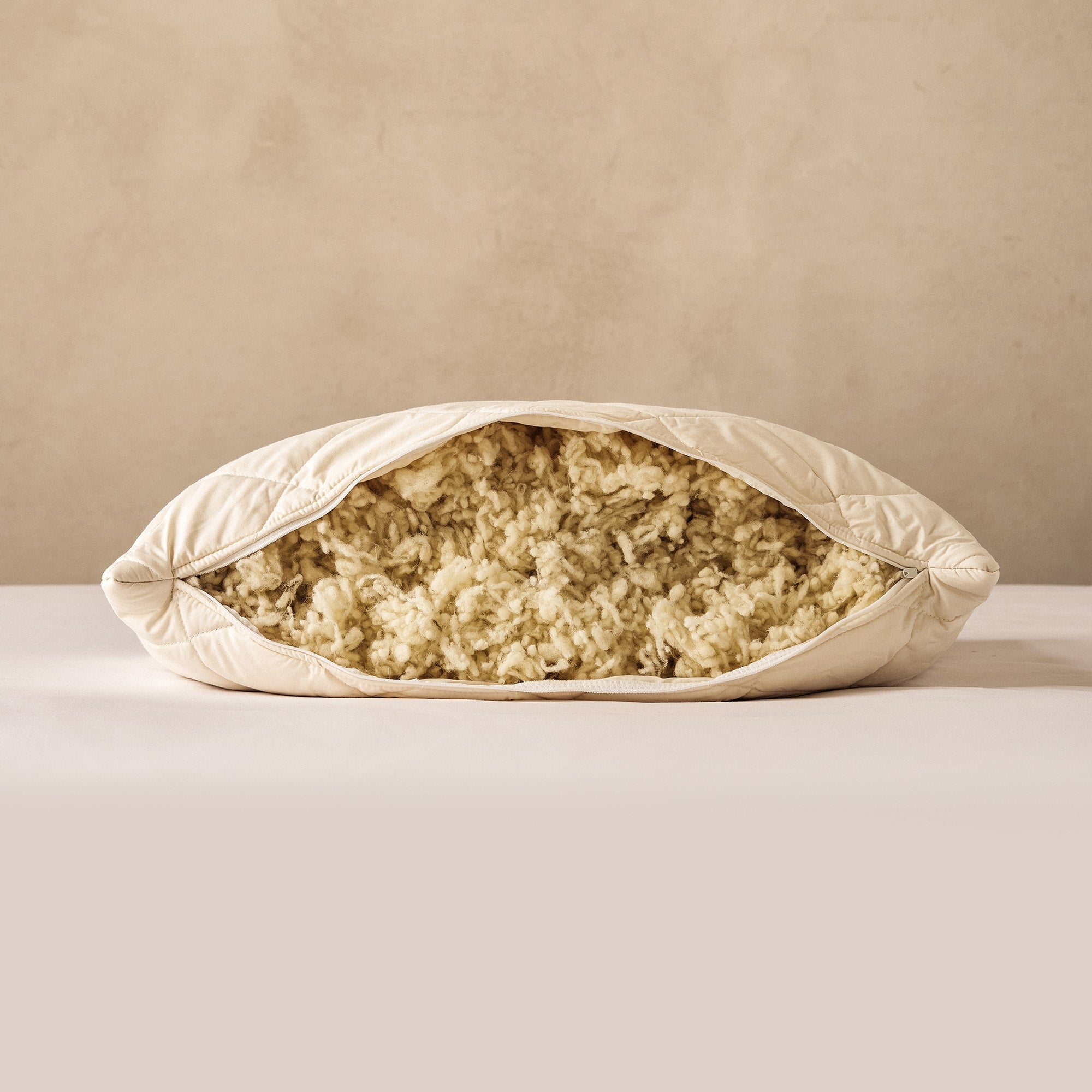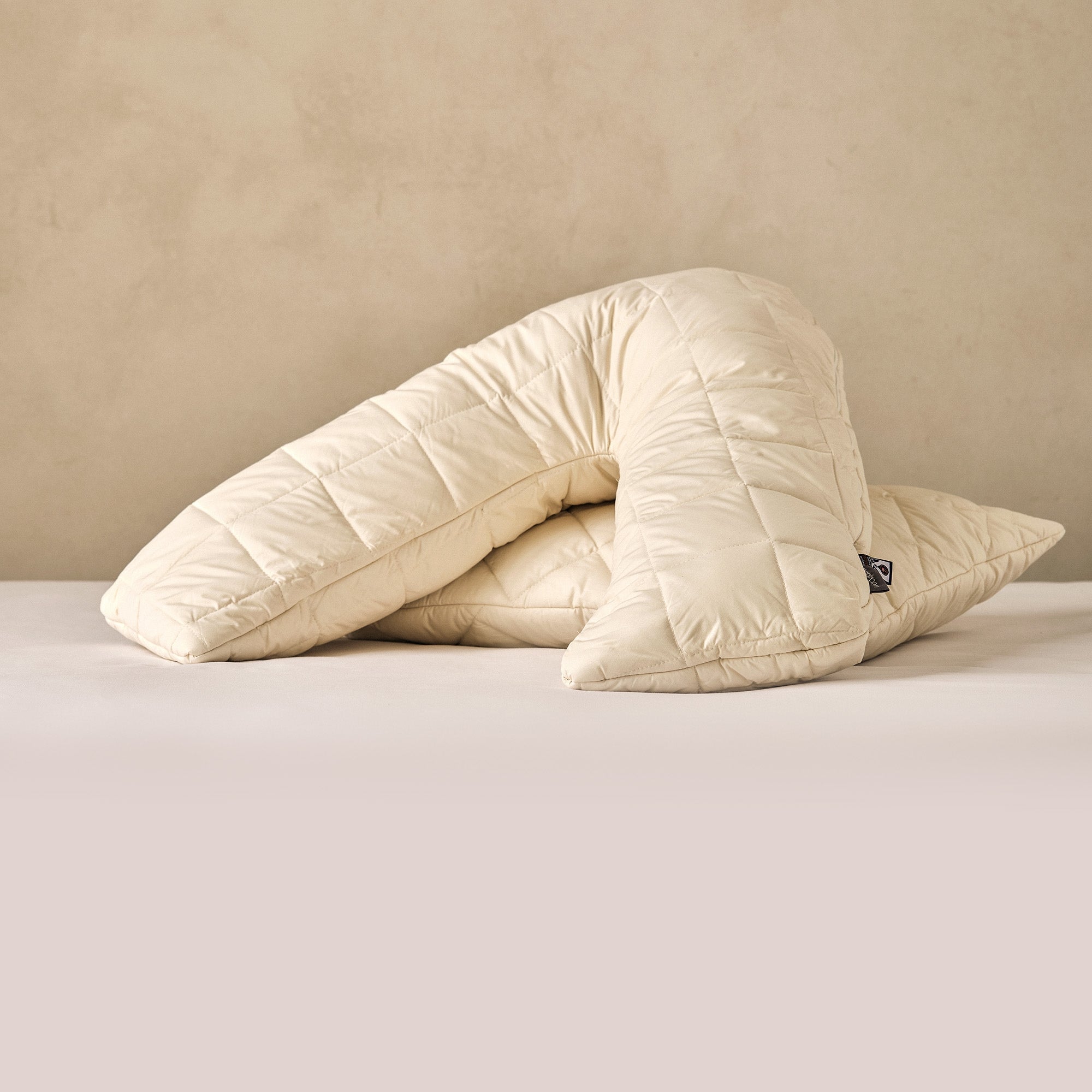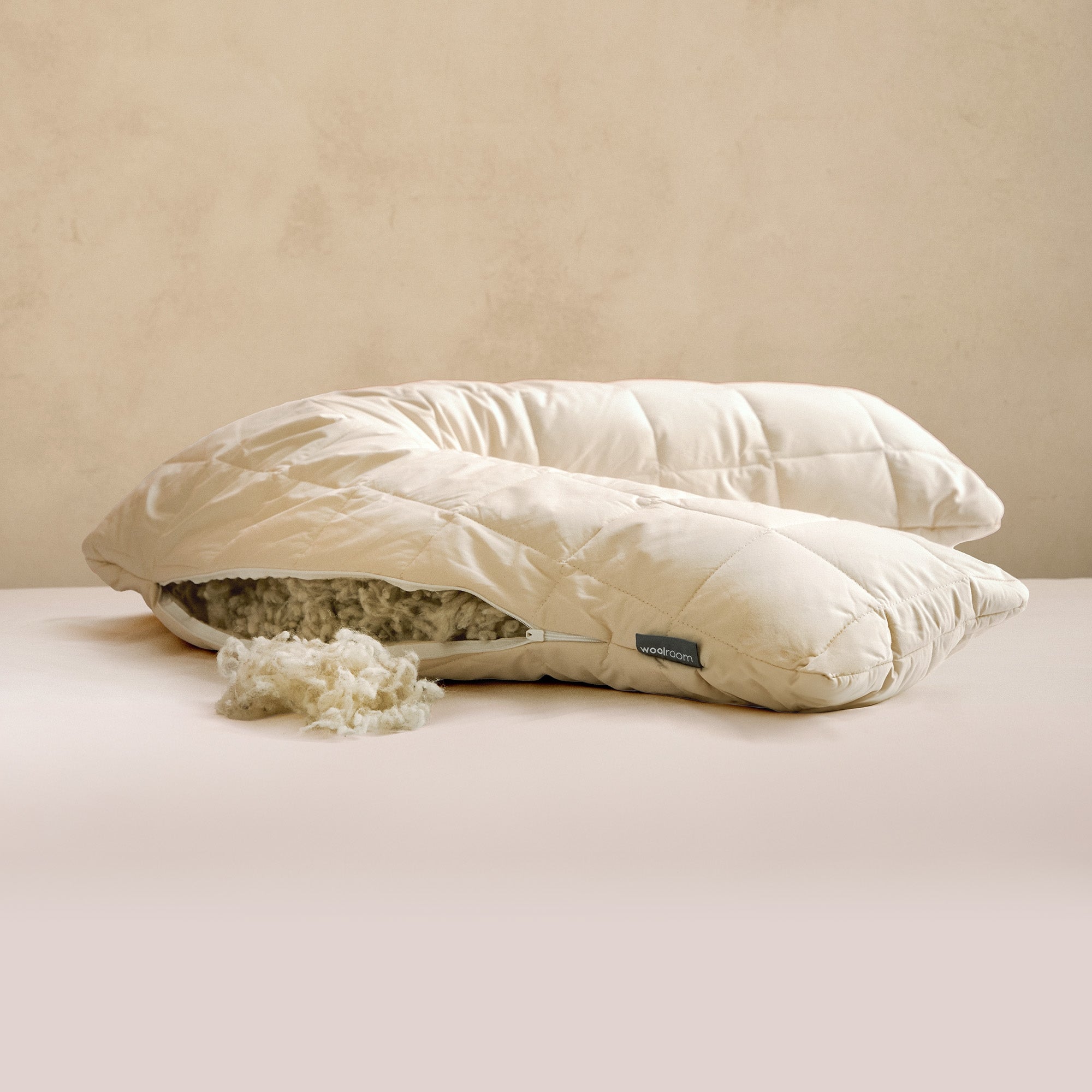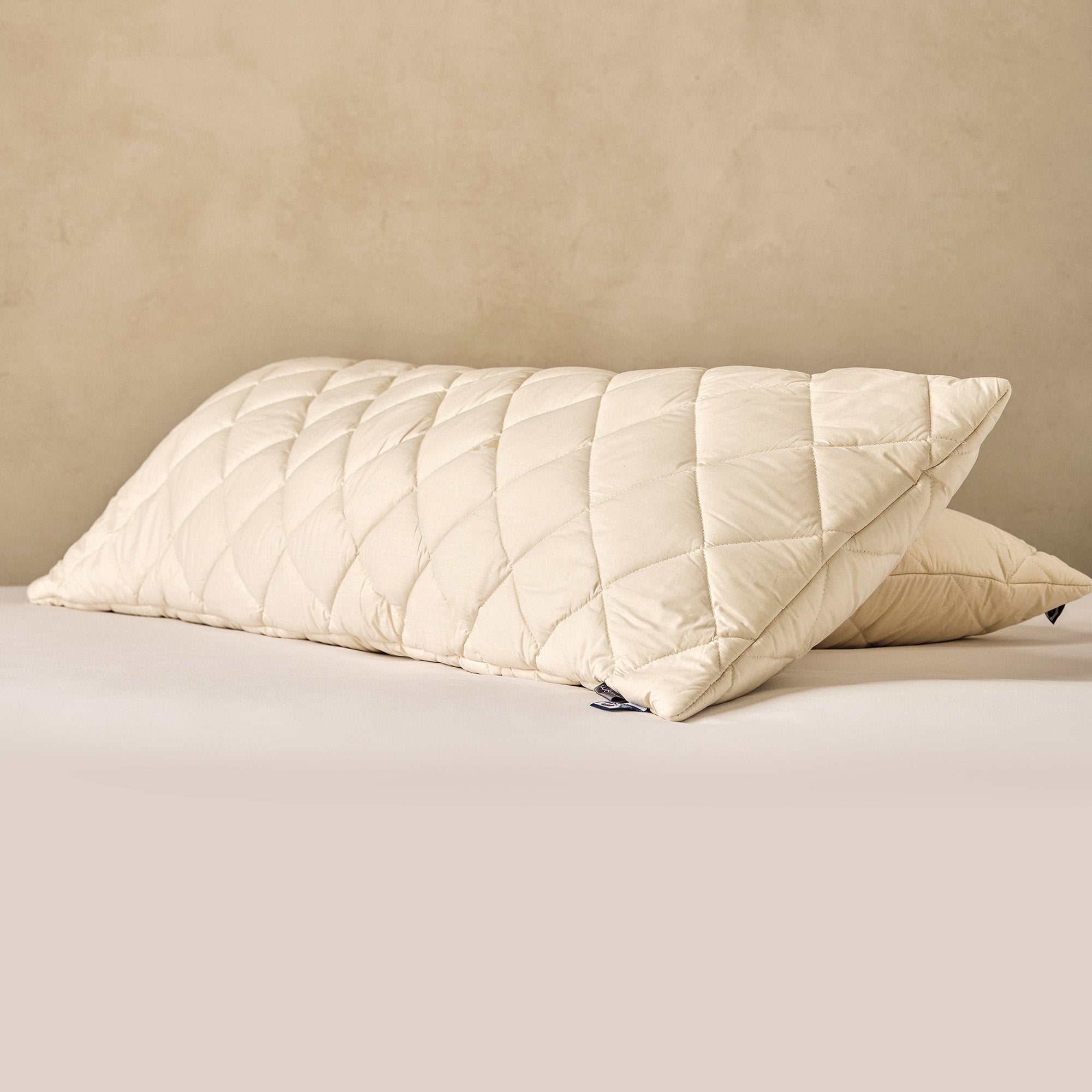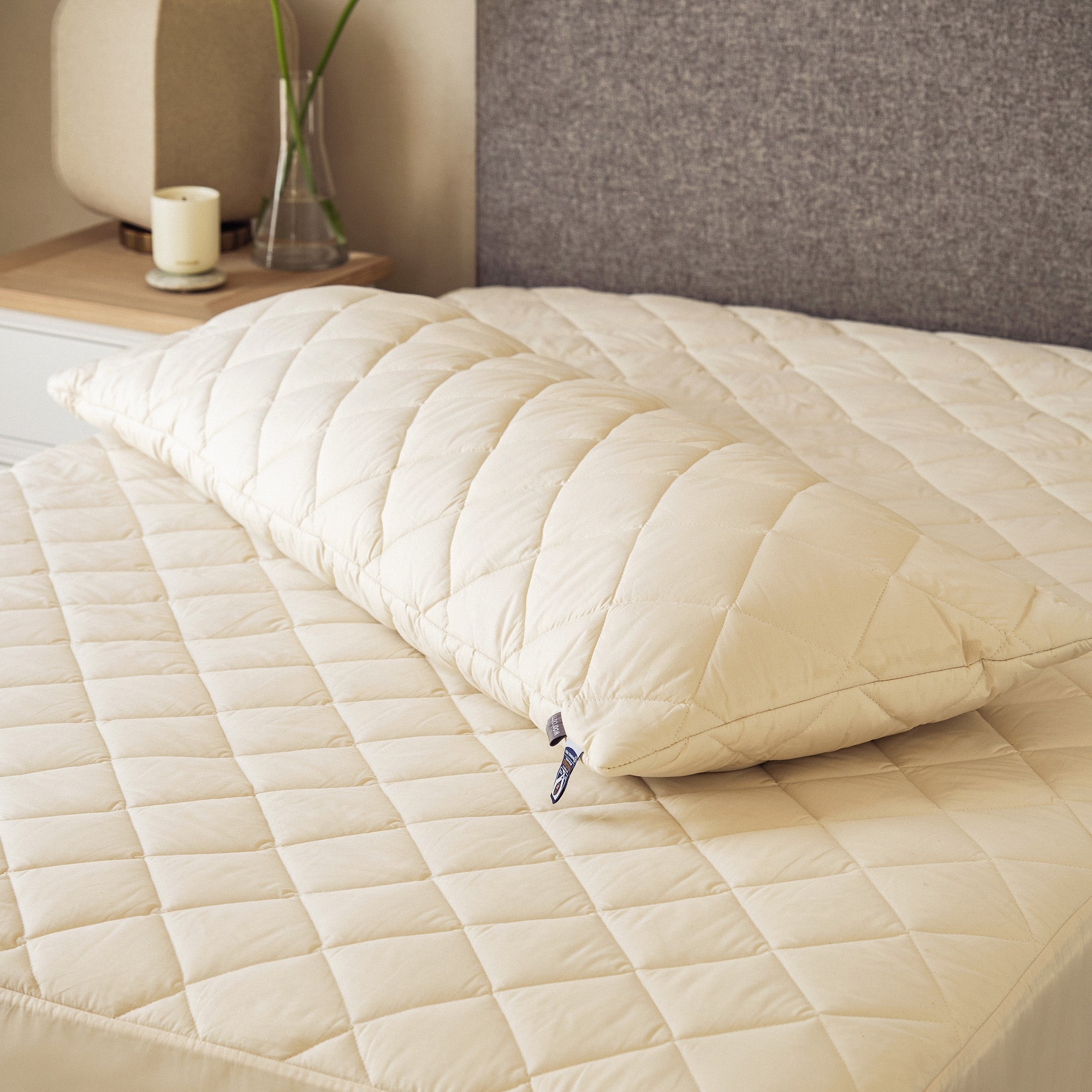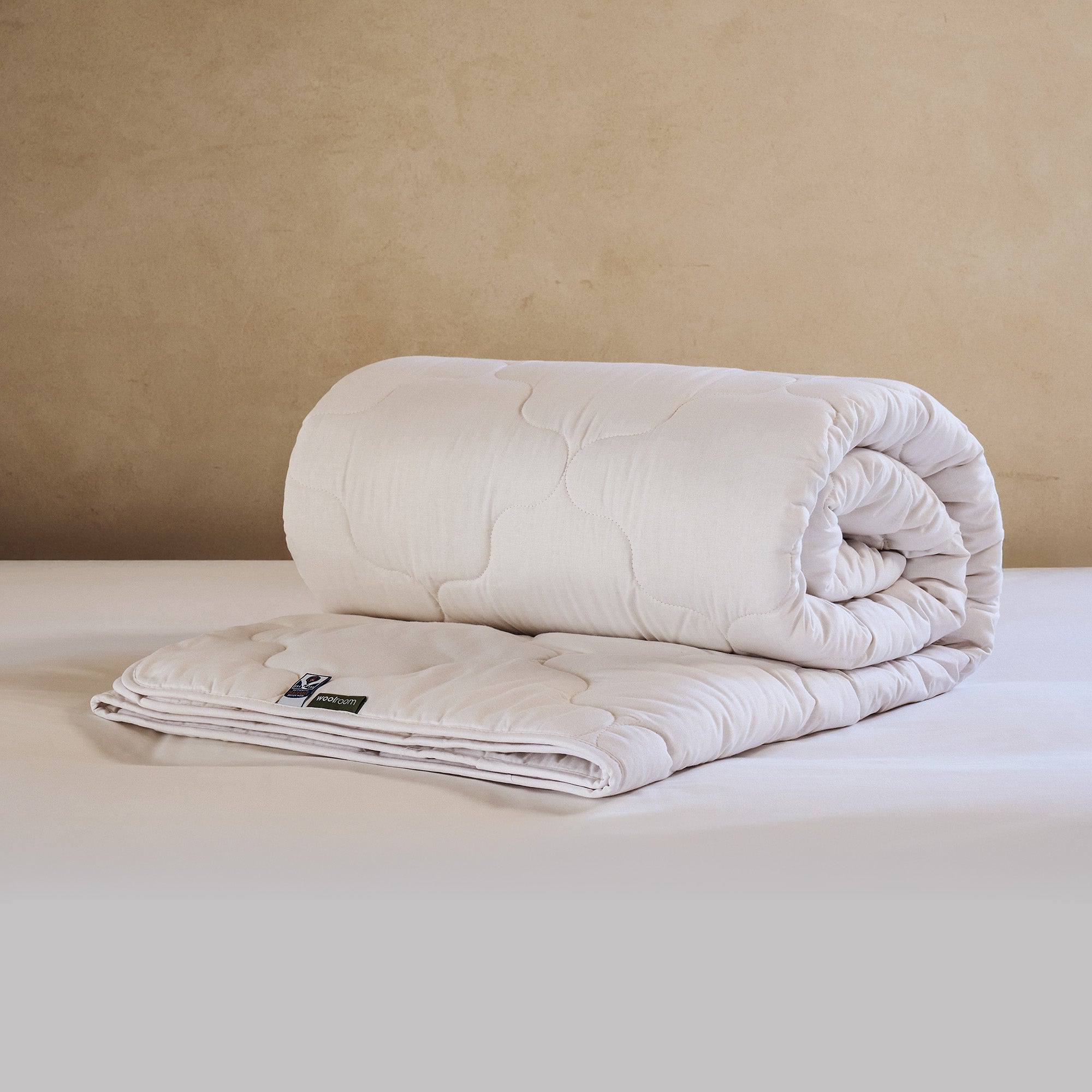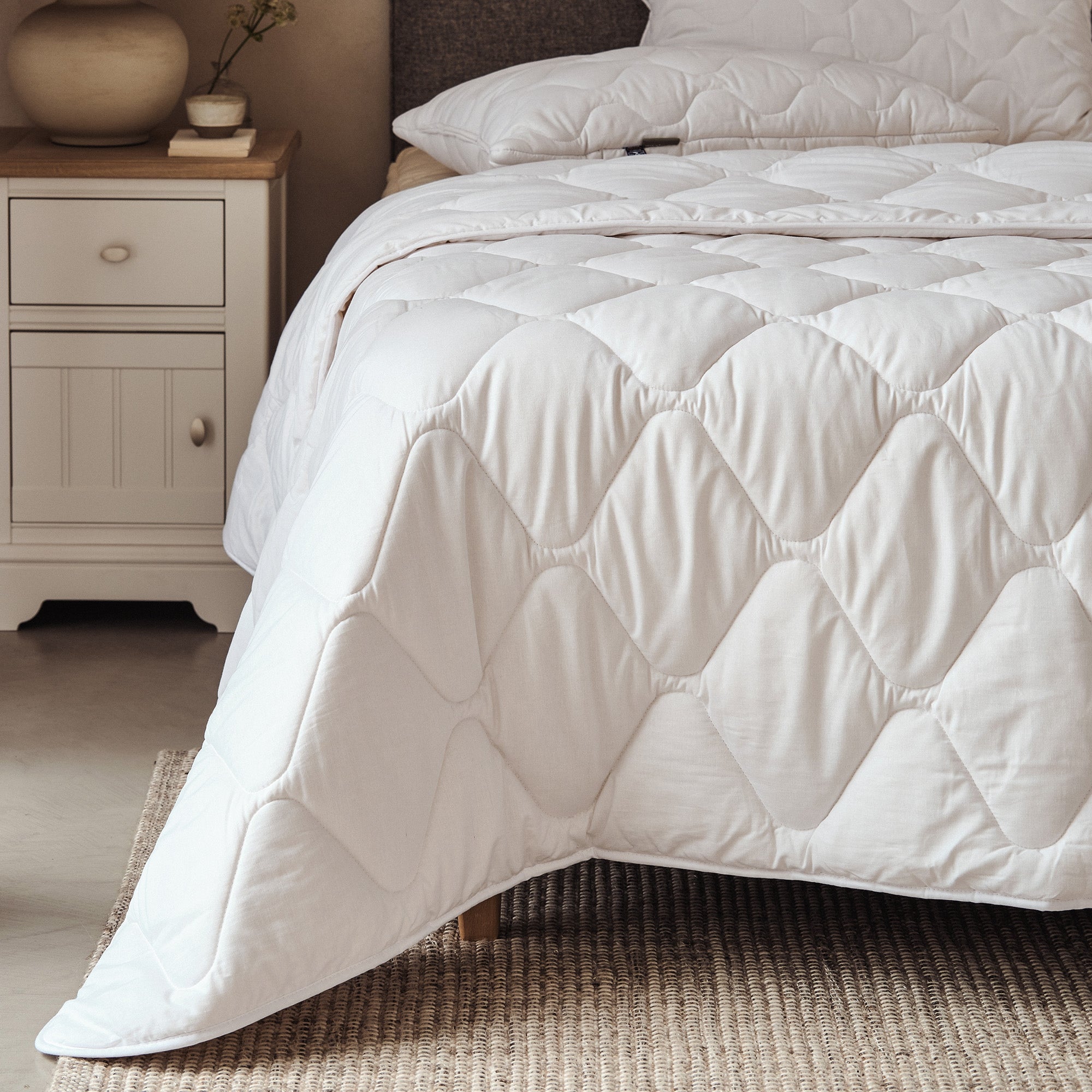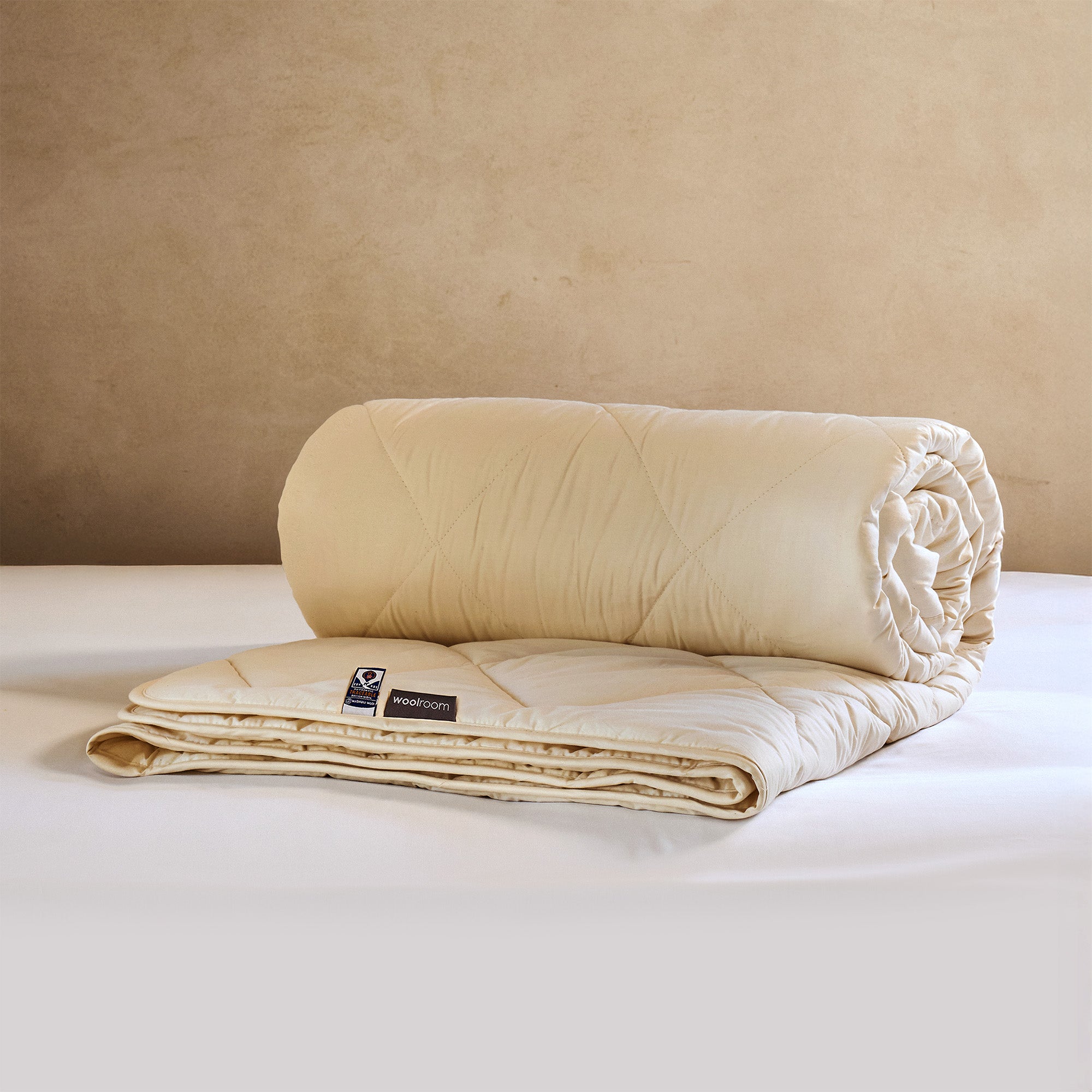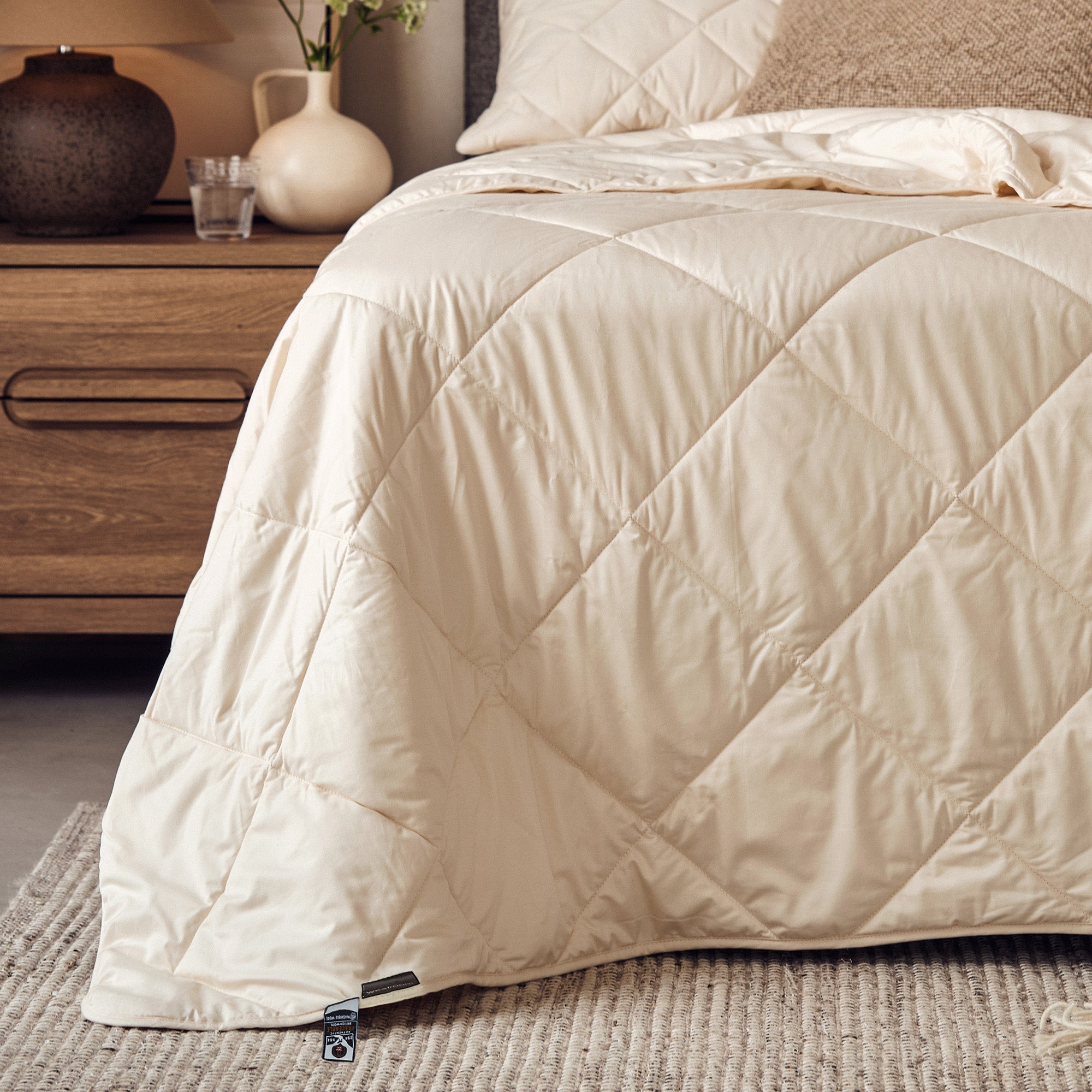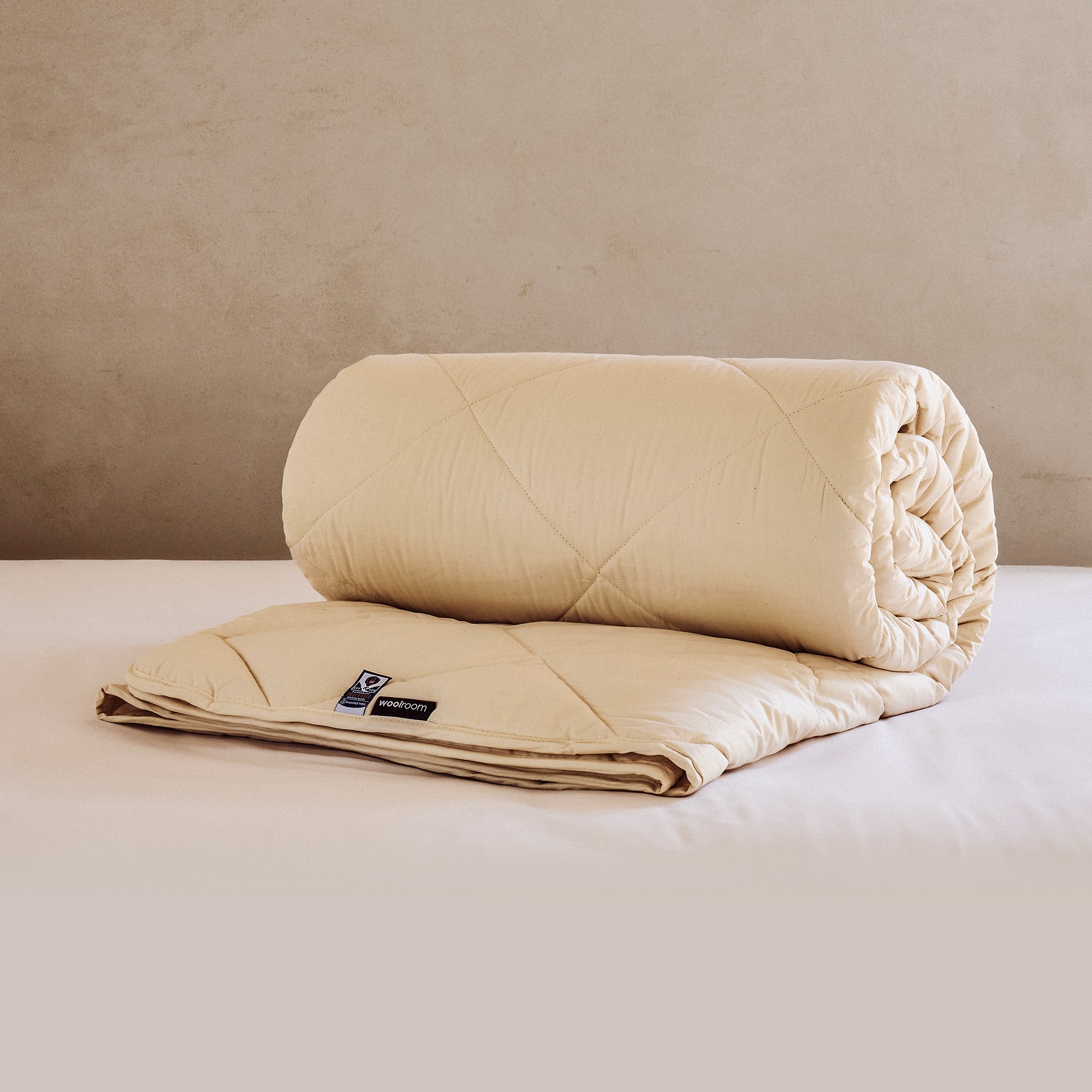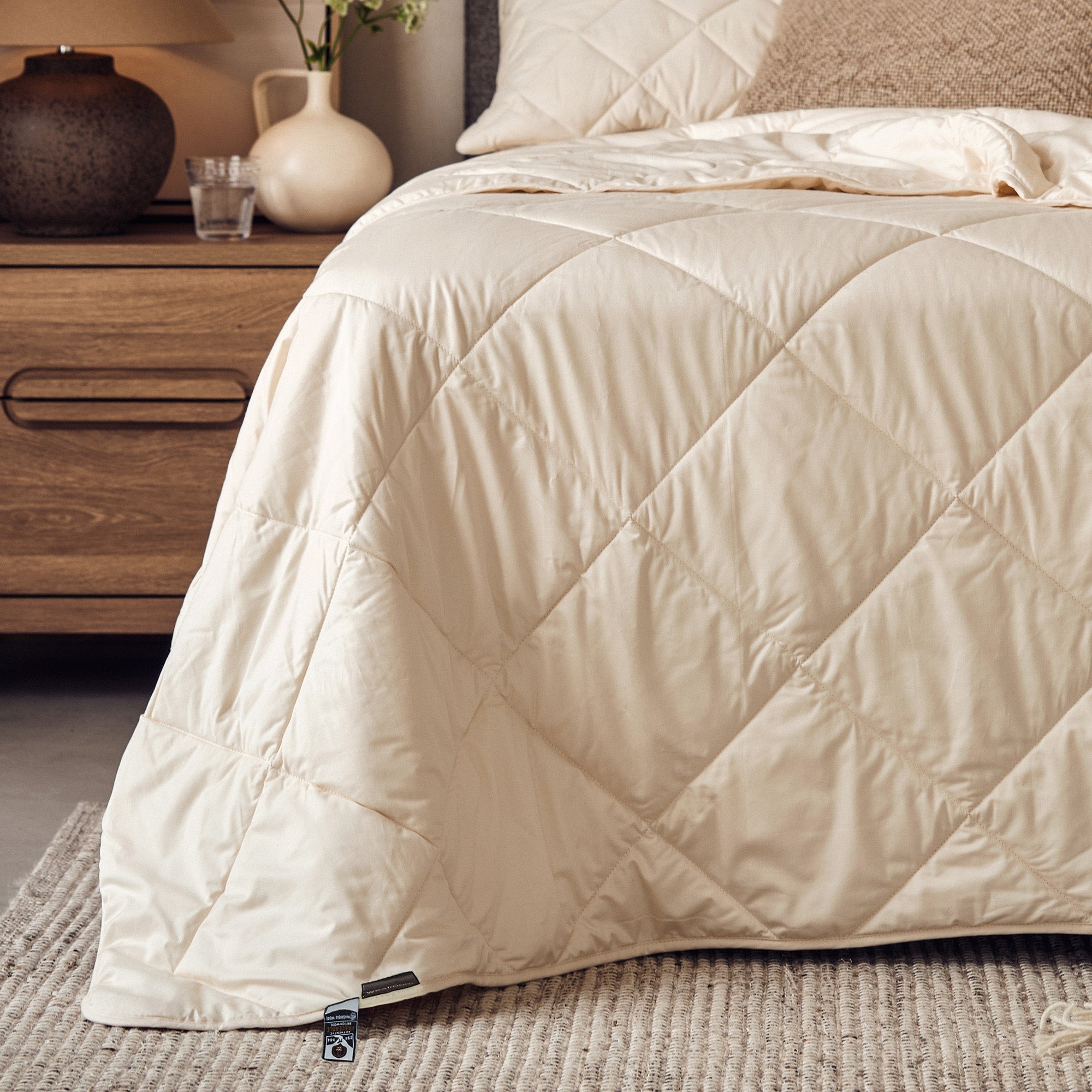People often choose pillows based on comfort alone, but material should also be considered. Many pillows contain harmful fabrics and inserts that can damage our health. Since so much of our time is spent sleeping, it’s important to have a nontoxic pillow made from safe ingredients. Below, we'll discuss what nontoxic pillows are and how they can improve your health.
What Are Nontoxic Pillows?
Organic, nontoxic pillows are made without harmful materials. Conventional pillows often contain synthetic materials and chemicals, such as flame retardants and VOCs, that can emit toxic fumes. However, organic pillows are made with natural and sustainable materials, like wool, organic cotton, or natural latex. Sustainable pillow materials are also manufactured without pesticides and synthetic fibers that harm the environment and hurt our health. They’re hypoallergenic, breathable, and don't release harmful chemicals, helping you get clean, healthy sleep.
Health Risks of Synthetic Pillow Materials
Sleeping on conventional pillows may damage your health by causing certain health issues. Here are some of the most common ones.
- Allergies and asthma. Synthetic materials trap dust mites, mold, and other allergens more easily than organic pillow materials. This can cause coughing, sneezing, and other issues with allergies and asthma.
- Chemical off-gassing. Many synthetic materials can release volatile organic compounds (VOCs) that contribute to indoor air pollution and lead to problems like headaches, dizziness, and nausea.
- Skin irritation. Some synthetic covers contain dyes, chemicals, or finishes that can irritate the skin. Long-term contact with these substances can cause rashes or discomfort, especially for people with sensitive skin.
- Sleep disruptions. Allergies and other discomfort caused by synthetic pillow materials can disrupt sleep, causing fatigue and cognitive issues.

What Makes a Pillow Sustainable and Nontoxic?
Eco-friendly pillows come from organic materials obtained ethically and without harmful pesticides. When you use these pillows, you help the environment and don't have to worry about toxic chemicals that can negatively affect your health. Organic pillows typically have certifications to prove they contain safe materials.
Benefits of Using a Nontoxic, Organic Pillow
There are several health and environmental
- Hypoallergenic - Organic pillows are less likely to cause allergy symptoms because they prevent dust mites and molds from harboring in your pillow
- Chemical-free - Sustainable pillows come from natural materials that are grown without the use of pesticides, synthetic fertilizers, or GMOs. They also don't have chemicals like VOCs that can pollute the air in your home.
- Sustainability - Eco-friendly pillows promote organic farming methods that improve soil health, reduce water usage, and minimize environmental impact
- Breathability - Natural materials like wool and organic cotton allow for better airflow than synthetic materials. This helps prevent overheating while you sleep
Choosing a Nontoxic Pillow: Key Features to Consider
If you're looking for a nontoxic pillow, there are a few key features that can help ensure you're choosing a safe option. These include:
- Natural materials - Check the label to see what the pillow is made from. Nontoxic pillows are made from natural and organic materials grown or sourced without harmful pesticides, synthetic fertilizers, or GMOs
- No harmful chemicals - Look for a pillow that doesn't have flame retardants, phthalates, formaldehyde, or VOCs.
- Third-party certifications - Check your organic pillow's label for certifications that prove it comes from clean, organic sources
- Sustainable sourcing - Eco-friendly pillows come from ethically sourced materials. Look for certifications that prove the materials come from organic farms
What Materials Are Used in Organic, Nontoxic Pillows?
Nontoxic pillows can be made with several types of natural and sustainable materials, such as:
- Organic cotton. Organic cotton is grown without harmful fertilizers and pesticides, making it safe for you and the environment. It's soft, breathable, and hypoallergenic.
- Organic wool. Wool pillows are temperature-regulating, helping you stay at the perfect temperature at night. They also wick away moisture, keeping you cool and dry throughout the night. Organic wool comes from ethically raised sheep on organic farms.
- Organic latex. Pillows made from natural latex are exceptionally supportive, durable, and hypoallergenic. These pillows are made from natural latex from rubber trees and don't contain synthetic additives.
- Organic buckwheat hulls. Buckwheat hull pillows contain the outer husks of buckwheat seeds. The hulls create a firm, supportive pillow that conforms to your head and neck.
- Bamboo. Bamboo is a fast-growing, sustainable resource that uses less water than many other crops. Bamboo pillows are soft and cozy to the touch.
Third-Party Certifications
One way to be sure your nontoxic pillow is safe and organic is to look for third-party certifications. These may include
- Global Organic Textile Standards (GOTS). GOTS ensures products contain organic materials and meet strict environmental criteria.
- Global Organic Latex Standards (GOLS). This certification applies specifically to latex products and certifies that the latex used in the products is pure and organic.
- OEKO-TEX Standard 100. This isn't an organic certification, but it proves the pillow has been tested for harmful substances and is safe for human use.
- UL/Greenguard Gold. Pillows with this certification have been tested to ensure they emit minimal VOCs and are safe for indoor use.
- MADESAFE. The MADESAFE certification proves pillows are made without a wide range of harmful chemicals.
Tips for Maintaining Nontoxic Pillows
Regular maintenance can ensure your pillow stays clean, comfortable, and safe for many years. Here are some tips for properly caring for your organic pillow.
- Invest in a nontoxic pillow protector and pillowcase to protect your pillow from dust, moisture, and stains.
- Wash the pillowcase and protector regularly.
- Use a gentle soap to spot clean small stains or spills on the pillow. Blot the stain instead of rubbing to avoid spreading it.
- Fluff your organic pillow regularly to maintain its shape. Rotating it every few months can also help distribute wear evenly.
- Avoid overwashing the actual pillow, as frequent washing can break down the natural materials.
- Keep pets off your pillow to avoid allergens and odors.
- If you need to store your pillow, keep it in a cool, dry place, away from direct sunlight and moisture. Keep it in a breathable bag to prevent dust.



